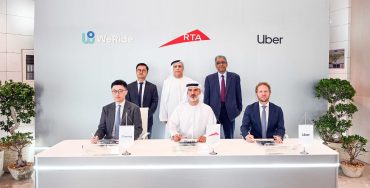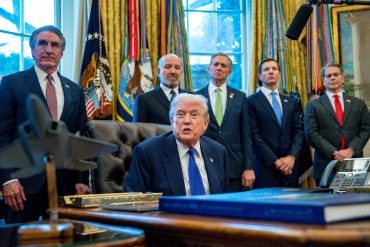
WeRide and Uber Launch Dubai Robotaxi Service, Secure $100M Deal
6 minute read

Dubai robotaxi service expands autonomous mobility market as WeRide secures major Uber investment for global expansion
Three Key Facts
- WeRide partners with Dubai RTA and Uber to launch commercial robotaxi services in Dubai, with pilot operations beginning this year and fully driverless services starting in Q1 2026.
- $100 million equity investment from Uber expected to close by second half 2025, providing critical capital for WeRide’s technology development and operational scaling across international markets.
- Dubai targets 25% autonomous mobility by 2030 under its Smart Self-Driving Transport Strategy, positioning the emirate as a leading global testbed for autonomous vehicle technology.
Introduction
WeRide secures a pivotal partnership to deploy robotaxis across Dubai, marking a significant expansion of Chinese autonomous vehicle technology into the Middle East. The autonomous vehicle company signed a Memorandum of Understanding with Dubai’s Roads and Transport Authority and Uber Technologies to introduce commercial robotaxi services on the world’s largest mobility platform.
The agreement positions WeRide to capitalize on Dubai’s ambitious autonomous transportation goals while strengthening its international footprint beyond the US-dominated robotaxi market. This development follows WeRide’s successful launch of the Middle East’s largest robotaxi fleet in Abu Dhabi just months earlier.
Key Developments
WeRide, Dubai’s RTA, and Uber formalized their cooperation agreement on June 15, 2025, establishing a framework for autonomous vehicle deployment across Dubai’s road network. The partnership builds on WeRide’s existing strategic relationship with Uber, which began in September 2024 with the UAE selected as the first international market for integration.
The rollout follows a phased approach designed to ensure safety and regulatory compliance. Initial operations will feature robotaxis with safety drivers operating commercially through the Uber app later this year. The service transitions to fully autonomous operations by the first quarter of 2026, eliminating the need for human oversight.
WeRide currently conducts road testing in Dubai under RTA supervision, preparing infrastructure and operational protocols for commercial launch. The company operates autonomous vehicles across more than 30 cities in 10 countries, providing extensive testing data for the Dubai deployment.
Market Impact
Uber commits $100 million in equity investment to WeRide, expected to close by the second half of 2025. This capital injection provides WeRide with resources for technology development and operational scaling across international markets.
The partnership accelerates WeRide’s global expansion strategy, with plans to deploy robotaxis in 15 additional cities over the next five years. According to CleanTechnica, WeRide’s rapid international growth includes recent expansions and diverse autonomous technology implementations across multiple markets.
WeRide holds the UAE’s first national license for autonomous vehicles, granting exclusive rights to operate self-driving cars on public roads. This regulatory advantage positions the company as a market leader in the region’s emerging autonomous mobility sector.
Strategic Insights
The Dubai partnership represents a strategic pivot for autonomous vehicle companies seeking growth outside the competitive US market dominated by Waymo and Tesla. The Middle East offers favorable regulatory environments, government support, and fewer trade restrictions compared to other international markets.
WeRide’s success in Dubai creates a blueprint for Chinese autonomous vehicle companies expanding globally. Competitors including Pony.ai and Apollo Go are similarly targeting Middle Eastern markets for international growth, indicating a broader shift in autonomous vehicle commercialization strategies.
The integration of autonomous vehicles into established ride-hailing platforms accelerates the transition toward Mobility-as-a-Service models. This approach reduces dependence on private vehicle ownership while providing immediate market access through existing user bases.
Expert Opinions and Data
Jennifer Li, CFO and Head of International at WeRide, emphasizes the company’s regional focus. “We are accelerating our international expansion, with the Middle East as a strategic priority,” Li states. “We are fully aligned with the Dubai government’s ambitious vision to make 25% of all transportation trips autonomous by 2030.”
His Excellency Mattar Al Tayer, Director General of Dubai’s RTA, positions the initiative within broader smart city objectives. “The introduction of autonomous vehicles in Dubai represents a significant leap towards a smart and sustainable future for mobility,” Al Tayer explains, reinforcing Dubai’s commitment to convert 25% of mobility journeys to autonomous trips by 2030.
Frans Hiemstra, Regional General Manager for Middle East and Africa at Uber, highlights the platform’s autonomous vehicle strategy. “This strategic collaboration anchors our commitment to make autonomous vehicles more accessible to people around the world,” Hiemstra notes, indicating Uber’s broader autonomous vehicle deployment plans.
Conclusion
WeRide’s Dubai partnership establishes a significant foothold for Chinese autonomous vehicle technology in the Middle East’s emerging mobility market. The phased deployment approach balances commercial objectives with safety requirements, creating a sustainable model for autonomous vehicle adoption.
The collaboration demonstrates how established ride-hailing platforms can accelerate autonomous vehicle commercialization while providing regulatory authorities with controlled testing environments. Dubai’s supportive regulatory framework and ambitious autonomous mobility targets position the emirate as a crucial testing ground for global autonomous vehicle expansion.








